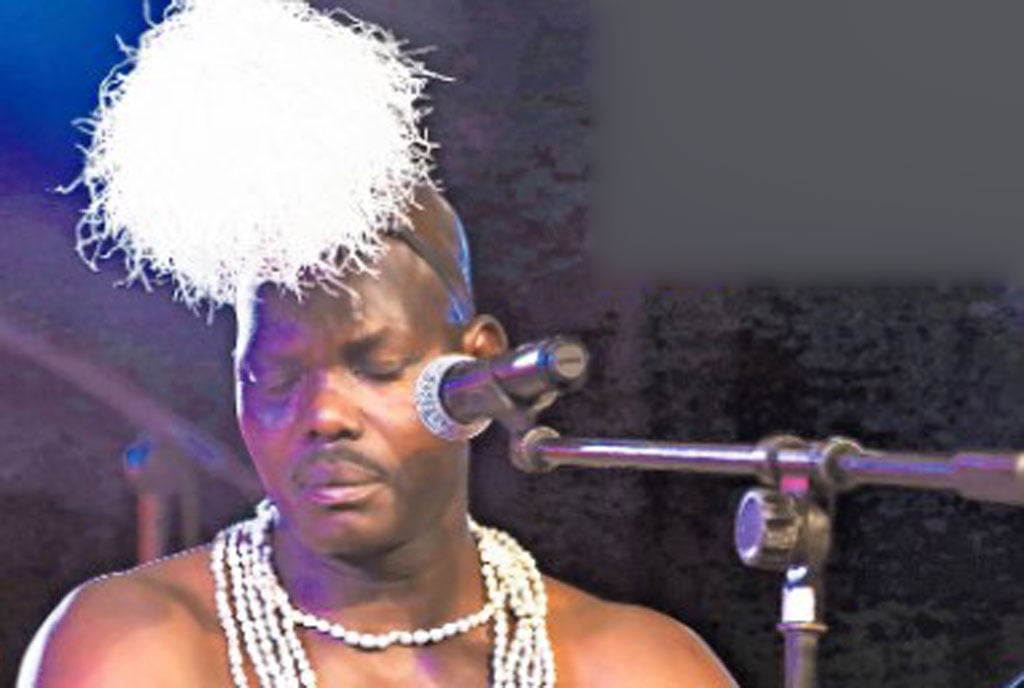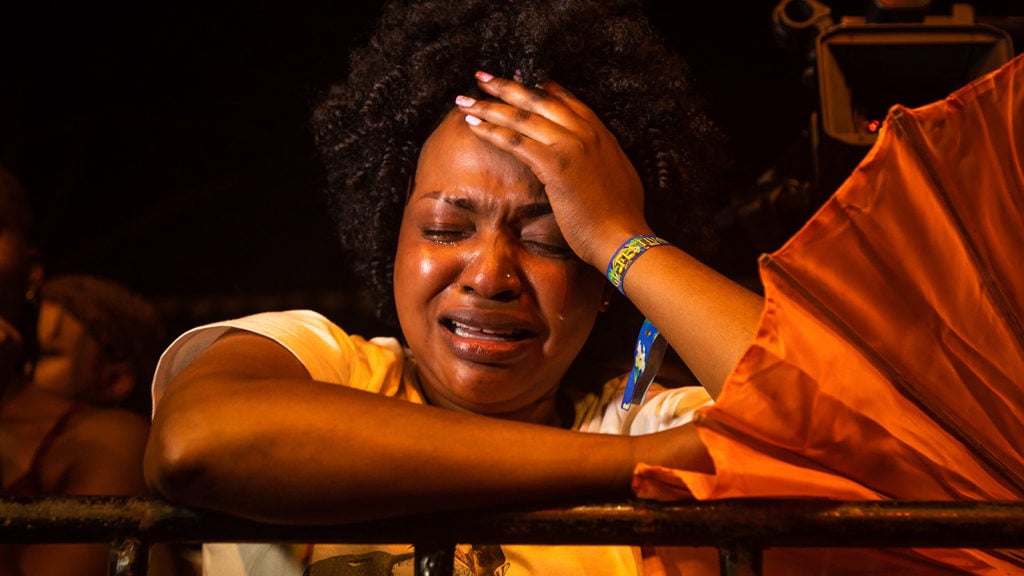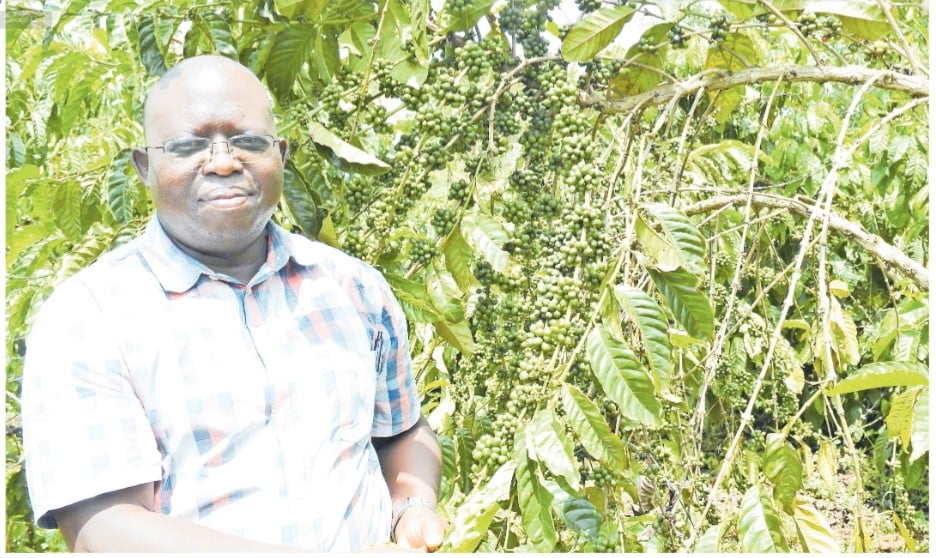
Mustafa Bakri, a musician from Sudan, entertains revellers at the 2024 Nyege Nyege Festival. PHOTO | ANDREW KAG-
GWA
It's the Nyege Nyege Festival all over again. Without pandemic-related curbs, this would have been the 10th edition of a festival that kicked off as a celebration of electronic music artists engineered by two film teachers.
As time goes, the festival keeps redefining itself from an electronic music celebration to an Afrocentric music discovery.
From artistes on their Nyege Nyege Tapes and Hakuna Kulala music labels, the festival ships a number of traditional and unique sounds to the stage, many of which, one of the festival founders Derek Debru says, have been received so well on the global festival circuit.
The opening days of Nyege Nyege have often been considered the original Nyege Nyege. The numbers are small and there's more online talk than there are people on the grounds.
This year, however, the festival had a bigger turnout on day one compared to the past. It’s the first time in as many editions that all stages were active simultaneously on day one.
This edition also marked the return of expatriates after a bomb scare at the last edition. It also marked the return of Nyege Nyege Festival’s favourite foreign audience, the Kenyans.
This year, festival-goers on day one were introduced to Nakibembe Traditional Performers from Iganga, a group whose music gets much of its sound from the xylophone.
However, the biggest revelation from the opening day were the Sudan refugee artistes who took to the stage in three intervals.
They called it the Sudanese pavilion, featuring Suda Culture, Mahdiya, Alaa Dishouni, Sudan Freedom Vibes, Altayeb Sega, Mazin Peter and Mostafa Bakri, among others.
Music from Sudan can barely take you by surprise, yet it manages to sound new. It's the kind with many influences. The rich traditional and rural sound from northeastern Africa roots and Arabic, western or other African influences, especially on the popular urban music from the early 20th century onwards.
Thus during their performance, many Ugandans not privy to their sound kept mistaking them for Eritrean, Egyptian or even Ethiopian.
None could have been truer, especially since the sound borrows from many other dominant sounds.
But one thing that they have and it is common with all other African cultures is the celebration ululations, whether it is from Masaka or Khartoum, it's drastically similar.
It is one thing they did and locals joined them.
The performers, however, were not all traditional. In fact, they fused their sound with modern sounds such as reggae, Terab and at some point, Afrobeats.
The Sudan pavilion at Nyege Nyege is such a big deal thus, you could see the mobilisation in the audience as well. From different parts of Uganda, they showed up in numbers to cheer on the artistes.
When Sudan Freedom Vibes took to the stage, for instance, some people in the audience started giving them shout-out even when they were still setting up.
One of the gentlemen in the crowd even handed the lead singer a flag which he later wore as Superman's cape. That flag later made a couple of rounds even with future performers.
Unfortunately for them, Sudan Freedom Vibes was very underwhelming, their sound was unique, not entirely reggae but just a blend of it, though they didn't seem ready for the performance.
The guitarist and drummer often played in very different keys and the vocalist would stop the song and ask them to start it all over. It's something that happened more than once and somehow irritated an eager audience.
But Mostafa Bakri restored order thanks to his spirited performance. His performances featured three guitars, an acoustic, a bass and the oud, also known by some as the Arabic guitar.
Much as he still features a pianist, the three guitars are what stood out and they are the sound that pierced through the venue and of course, his voice, which at times sounds like a call to the morning prayer.
He had his audience eating out of his palm and he is a charmer. He may have spent more than half of the performance with his audience, singing with them and giving them the mic to ululate.
He was barely on stage. And that is what was intriguing about him. He knew his audience and delivered for them. They celebrated the music while the rest were stunned.
But there's more that has been worth celebrating in the first days of the festival.







